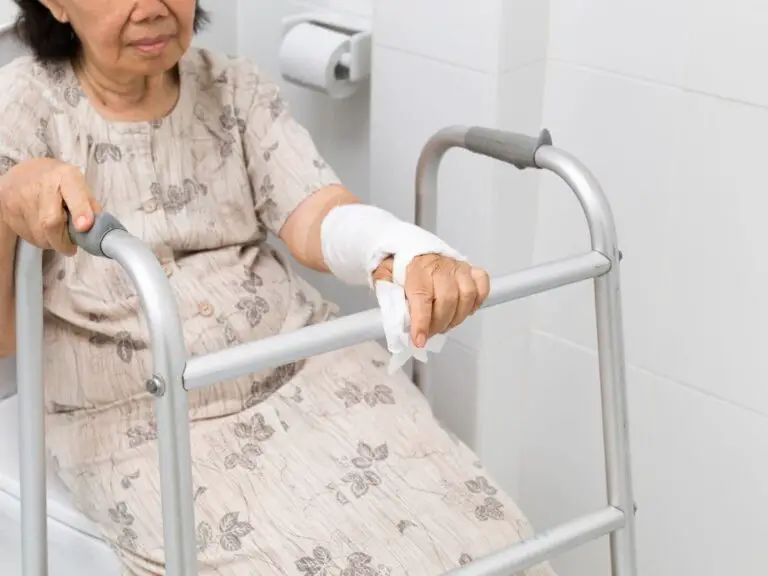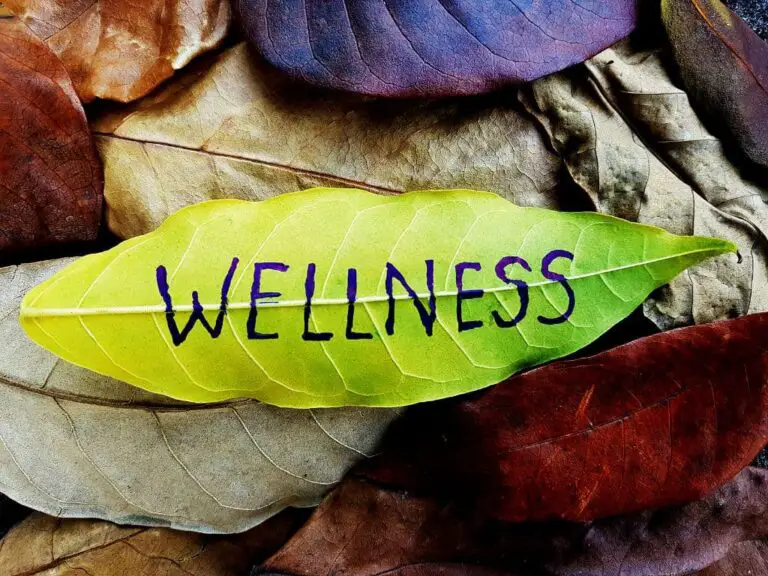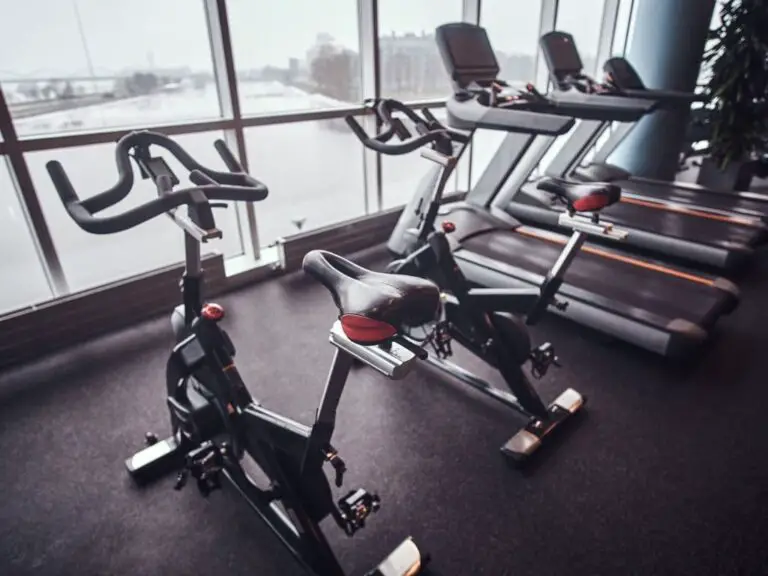Is Being Tired at 70 Normal?
Fatigue is a feeling of tiredness, lethargy, sluggishness, or lack of energyand motivation. It can range from mild to severe and make even simple daily tasks seem exhausting.
As we get older, it’s common to experience some degree of fatigue. But is it normal for a 70 year old to be tired?
Mild fatigue is often considered a normal part of aging, due to changes in muscle mass, bone density, metabolism, hormone levels and sleep patterns. However, persistent exhaustion at 70 is not typical and may indicate underlying health issues such as chronic illnesses, medication side effects, poor sleep or nutritional deficiencies that require medical attention.

Is It Normal to Feel Tired at 70?
Mild fatigue is often considered a normal part of the aging process. As we get older, our bodies go through various changes that can leave us feeling more rundown.
For example, we tend to lose muscle mass and bone density as we age. Our metabolism and hormone levels also change over time. All of these changes can contribute to some decrease in energy.
In addition, common health issues like arthritis, heart disease, and diabetesbecome more prevalent with age. The chronic nature of these conditions can drain our energy over time.
Sleep patterns also tend to change as we get older, with more frequent nighttime awakenings and lighter, less restorative sleep. This interrupted sleep can lead to increased daytime tiredness.
So mild feelings of fatigue, especially later in the day, are often considered normal aging. But significant, persistent exhaustion is usually a red flag that something more serious may be going on.
What Are the Common Causes of Fatigue in Older Adults?
While some degree of tiredness is expected, there are a number of factors that can lead to more severe or chronic fatigue in adults over 70. Common causes include:
1. Chronic Illnesses
Ongoing illnesses like heart disease, cancer, diabetes, arthritis, and COPD often involve inflammation that can sap energy over time. Managing these diseases is important.
2. Medications
Many common prescription drugs – including those for high blood pressure, anxiety, and insomnia – have fatigue as a potential side effect. Review medications with a doctor.
3. Poor Sleep
Insomnia, sleep apnea, restless leg syndrome and other conditions can lead to non-restorative sleep and daytime drowsiness. Getting quality sleep is essential.
4. Lack of Physical Activity
Sedentary lifestyles become more common as we age. But inactivity can worsen fatigue and weakness. Light exercise can help boost energy.
5. Nutritional Deficiencies
Poor nutrition and low levels of vitamins D, B12, iron, and other nutrients can drain energy. Eat a balanced diet rich in nutrients.
6. Mental Health Issues
Depression, stress and anxiety often increase with age. Getting help to address mental health issues can relieve fatigue.
How Can You Manage and Reduce Fatigue at 70?
If you find your fatigue is ongoing and impacting your life, there are things you can try to boost your energy:
1. Regular Exercise
Low-impact, aerobic exercise like walking, swimming, or cycling helps reduce fatigue. But check with your doctor first.
2. Balanced Diet
Eat a nutritious diet with protein, fruits, vegetables, and whole grains. Hydration is also important.
3. Adequate Sleep
Aim for 7-8 hours per night and maintain a consistent sleep/wake schedule. Limit daytime napping.
4. Stress Management Techniques
Try relaxation methods like yoga, meditation, or deep breathing to reduce mental and physical stress.
5. Regular Check-ups
Discuss your fatigue with your doctor, who can check for underlying issues and review your medications.
When Should You Seek Medical Help for Fatigue?
Consult your doctor if fatigue:
- Comes on suddenly
- Is severe or persistent
- Is accompanied by other symptoms like pain, weakness, fever, dizziness, etc.
- Impacts your daily activities
- Doesn’t improve with self-care
Unexplained, chronic fatigue needs medical evaluation to identify any treatable cause. Some warning signs include anemia, thyroid disorders, heart disease, cancers, and autoimmune diseases. Proper treatment can help resolve fatigue.
What Are Some Misconceptions About Aging and Fatigue?
Some common myths about fatigue and aging include:
- Fatigue is an inevitable part of aging – While it often increases with age, severe fatigue still warrants medical evaluation.
- Being tired means you’re weak or lazy – Fatigue is not a sign of weakness. It’s usually caused by underlying health issues.
- Just push through and ignore fatigue – Trying to override chronic fatigue often makes it worse. Rest is important.
- Only strict bed rest will help – Staying active with light exercise and a routine can actually reduce fatigue.
- Nothing can be done medically – Doctors can check for contributing conditions and offer treatment options to improve energy.
Can Drinking Water Help Reduce Fatigue in Older Adults?
Staying well hydrated is important, especially for older adults. Dehydration can worsen feelings of fatigue.
Aim to drink at least 6-8 glasses of water daily. Learn the signs of dehydration – like concentrated urine, dizziness, confusion, or dry mouth – and be sure to drink more fluids at the first hint of these symptoms.
Increasing water intake may provide some relief from fatigue. But be sure to consult your doctor if you have ongoing exhaustion, as dehydration is unlikely to be the sole cause. Proper rest, nutrition, exercise, and medical care are essential.
The key is not to ignore persistent fatigue. Speak with your doctor to identify any underlying issues. While some fatigue is expected, significant exhaustion is not normal aging. With proper treatment of any conditions contributing to fatigue, many older adults can regain energy and resume an active lifestyle.
Frequently Asked Questions
-
Is being tired at 70 normal?
Mild fatigue is often considered a normal part of aging due to changes in muscle mass, bone density, metabolism, and hormone levels. However, persistent or severe exhaustion at 70 is not typical and could indicate underlying health issues such as chronic illnesses, poor sleep quality, lack of physical activity, nutritional deficiencies or mental health problems.
-
How far should a 78 year old walk?
In general, seniors in good health walk between 2,000 to 9,000 steps per day. These numbers translate into walking distances between 1 and 4 1/2 miles. Health benefits can be achieved by increasing the distance walked by approximately one mile.
-
What is the best fruit for elderly?
Stadler suggests blueberries, red raspberries and dark cherries to be the best fruits. He also recommends dark leafy vegetables such as spinach, kale and Swiss chard. They can be enjoyed all year, as they are as nutritious as fresh.
-
Why does my wife fart a lot?
An excess of gas may indicate easily treatable conditions, like lactose intolerance or specific food reactions (e.g. Beans, cabbage and some medications like ibuprofen or laxatives can cause excessive gas. There are also serious conditions such as Crohn’s disease, irritable bowel syndrome and diabetes.
-
Is cheese good for elderly?
However, it is worth noting that cheese can be a great dietary source for Vitamin D. Seniors can enjoy all of the benefits of cheese by choosing cheddar, Monterey Jack, or Swiss cheeses.
-
What happens when elderly don’t exercise?
People over 50 can suffer from a variety of health issues, including reduced muscle mass, strength, and endurance. Balance and coordination problems. Mobility and joint flexibility are reduced.
-
Where is it polite to fart?
Did you know, for example that Canadian Inuits often fart after eating? This is a way to show gratitude. However, other cultures and people may not have the same understanding of Inuit culture.
-
Why do I look so old and tired?
Skin Aging: As we age, our tissues and muscles around the eye area become weaker, and they start to sag, which can make us look tired. Our skin’s flexibility decreases as we age. Your lower eyelids can become plumper due to fluids and fats from the eyes.
-
What is the best food for seniors?
Protein (lean meats (fish, lean meats), eggs, beans, fruits and vegetables) Whole grains (brown rice and whole wheat pasta). Low-fat dairy (milk, and its substitutes)
-
What exercises reduce face wrinkles?
Interlock your fingers, place your hands behind your hairline and wrap your hands around it. Another way to reduce wrinkles is by interlocking them. To reduce wrinkles, pull your forehead forward a bit, pinch your lips and make an “O”, then look down. Tend this for 10 seconds. Relax and then repeat the process 20 more times.







